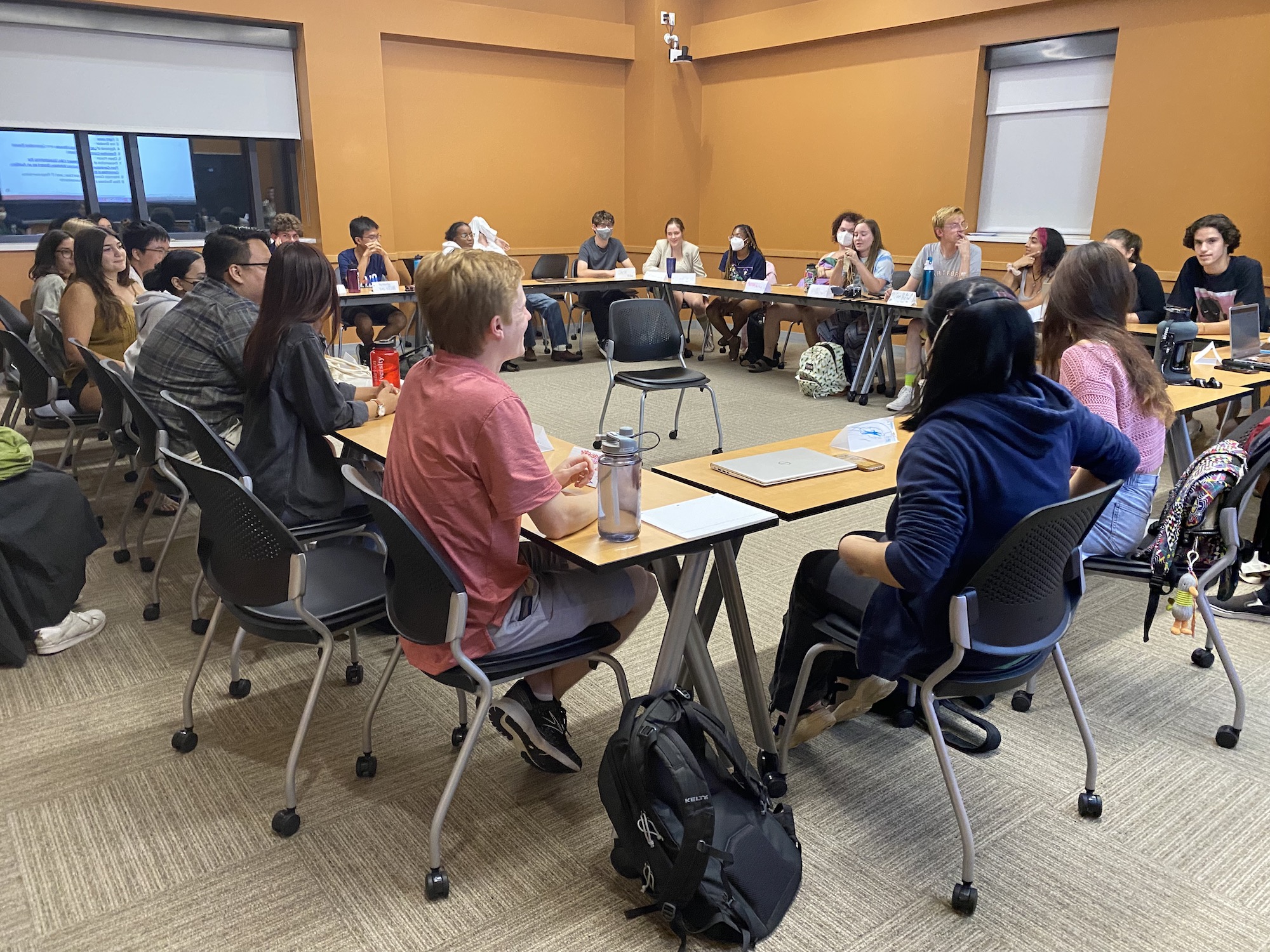
The Wesleyan Student Assembly (WSA) approved Amendment 3.44: Altering language in the Student Budget Committee (SBC) bylaws that could yield unfair results by a vote of 24 to 0, with 0 abstaining during its general assembly meeting on Sunday, Dec. 4. This amendment, co-sponsored by SBC Chair Ben Shifrel ’25 and SBC Vice Chair Briana Rodriguez Castillo ’23, removes the $300 cap on funding that identity-based student groups could receive. This change will cover expenses for culturally significant food, expand opportunities for identity-based groups to receive funds for bonding activities, alter the requirements for a group to receive a slate budget, and make it easier for the SBC to suspend its bylaws in special cases.
The amendment is the culmination of a multi-year effort to get it passed, according to Shifrel, the amendment’s primary sponsor.
“When I was a freshman, we had long discussions about the need for change in the bylaws to make them more equitable, as we saw that identity groups requested significantly less often and for less money than other performance or athletic clubs, even though there were similar amounts of them,” Shifrel wrote in an email to The Argus.
Rodriguez Castillo noted that this conversation has been going on for quite some time, as the old rules had been in place for as long as anyone can remember.
“The SBC had been talking about how the bylaws could be more inclusive for the past couple of years,” Rodriguez Castillo wrote in an email to The Argus. “I’m not sure how or when the original caps, on food in particular, originated, but this semester we really started to question why we had been blindly accepting this status quo. “
The greatest impact of the amendment on identity groups will be the way that the SBC calculates funding for food and bonding, Rodriguez Castillo and Shifrel explained.
“This cap was particularly detrimental to identity groups because a lot of what they do is host events for holidays and celebrations that are specific to their identity, and many of those events are heavily reliant on food,” Rodriguez Castillo wrote. “The previous cap didn’t take into consideration that some groups have ten members while others can have dozens of members, so the new amendment allows the SBC to rely on our judgment and on the information that groups give us.”
With specific regard to identity-based holidays, Shifrel explained that part of this amendment would loosen restrictions for special times of the year.
“Hardly any groups ever utilized the rule for months, and some students from a few groups already expressed to me how they wished they could use guaranteed funding for weeks,” Shifrel wrote. “Overall, I think these rules will increase the ability and interest of students in identity groups to request from the SBC, evening out the amount that all types of groups request funding.”
Although hopeful that this change will have a positive impact on identity-based groups, Rodriguez Castillo now thinks the focus needs to shift toward publicizing these changes.
“I think the work that needs to be done now is getting the word out,” Rodriguez Castillo wrote. “I think because our bylaws have been exclusive and not identity-group-friendly for so long, identity groups just assume that they can’t ask the SBC for money. So, I think a big part of our job for next semester is making it known that there is no cap on funding for culturally significant food for identity groups.”
Another element of the amendment that will impact student group funding is the change to slate budget requirements. Slate budgets are a type of predetermined allocation that the SBC gives to certain student groups who request the same amount of funding each semester. Under old guidelines, student groups had to show three years of budgets that backed up their requested slate. Because of the COVID-19 pandemic’s impact on clubs, however, many groups do not have normal budget records from the past three years. The amendment removed this requirement, easing the burden on clubs that routinely request similar amounts.
Finally, the amendment altered the guidelines for suspending the SBC’s bylaws. By the committee’s rules, if a group submits a budget request that violates the bylaws, the SBC can vote on whether or not to suspend the rules and approve the request. Currently, suspending the bylaws requires an unanimous vote of all seven SBC members. Because of the amendment, the requirement has been changed to an unanimous-minus-one vote unless there are five or less members present, in which case it must still be unanimous.
“In my time at SBC, I’ve seen the bylaws upheld many times because one single member did not want to suspend them—even though 6 of the 7 members thought that the request should be funded, it was not,” Shifrel wrote. “This [amendment] will allow more requests to be funded and not denied for arbitrary reasons that only one member felt were true. After one week, this new rule has already come into play and allowed for a request to be funded despite one person believing the bylaws should not be suspended.”
Any student groups with questions surrounding funding issues can reach out to Shifrel, Rodriguez Castillo, or other members of the SBC.
Sam Hilton can be reached at shilton@wesleyan.edu.


Leave a Reply